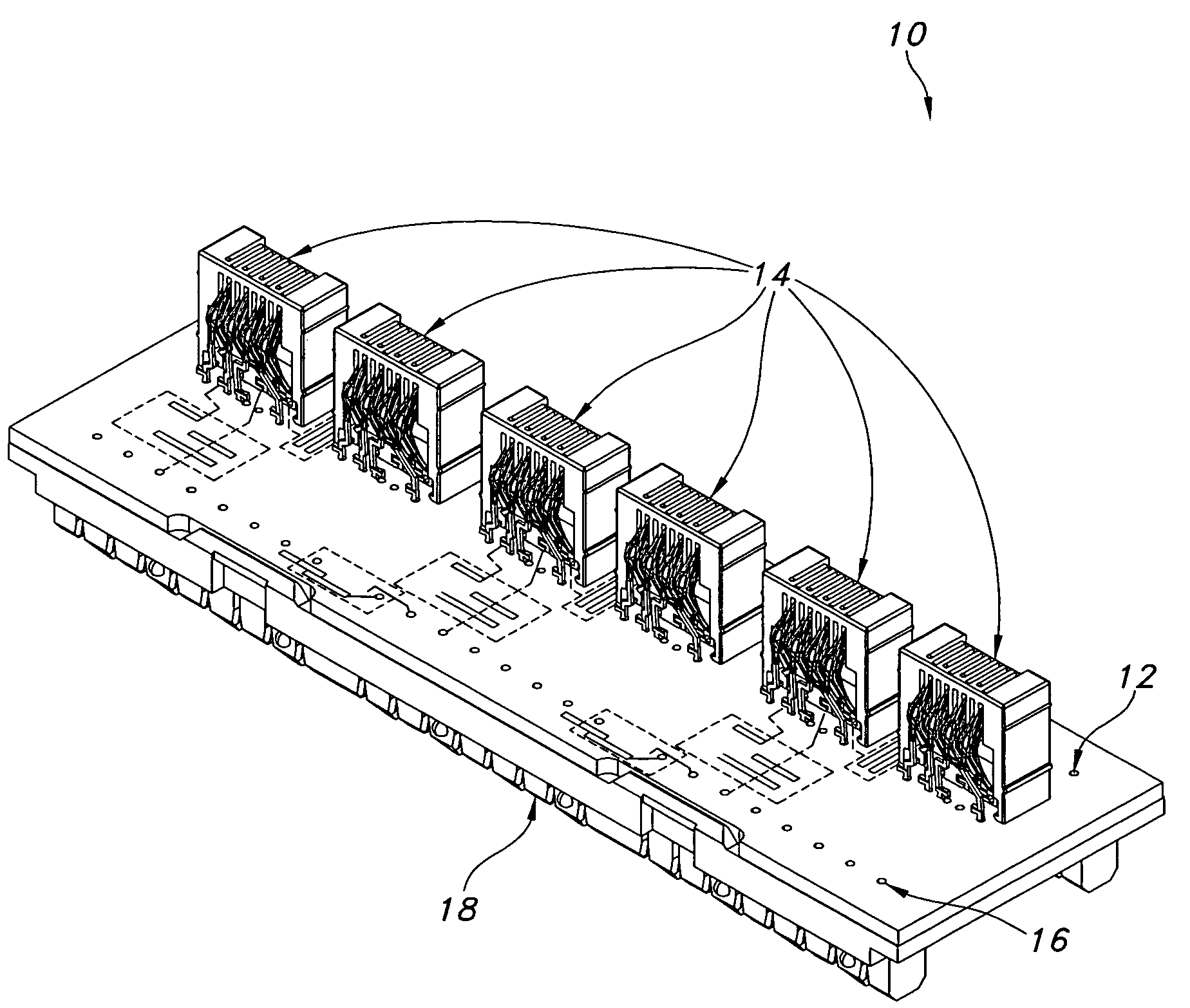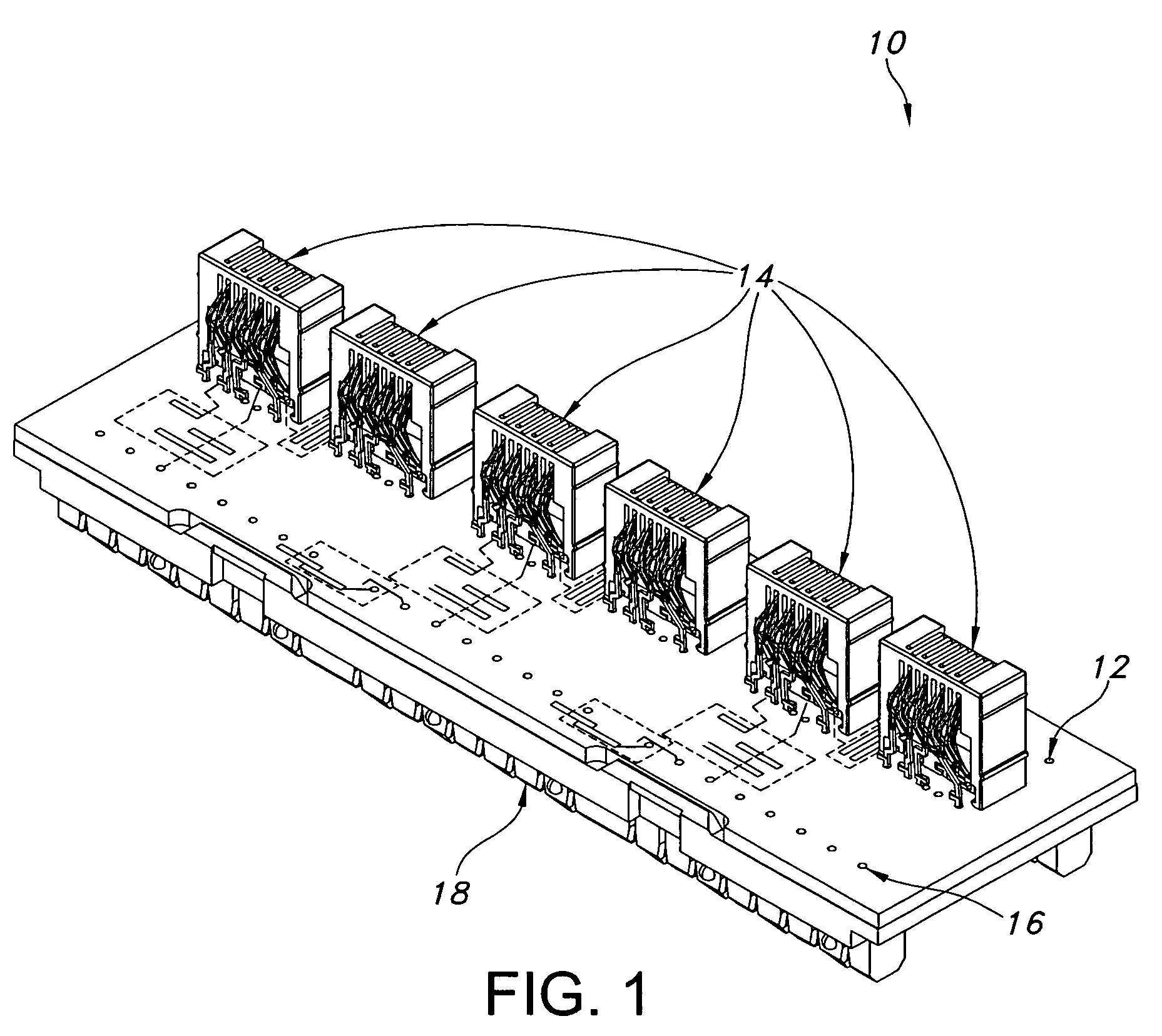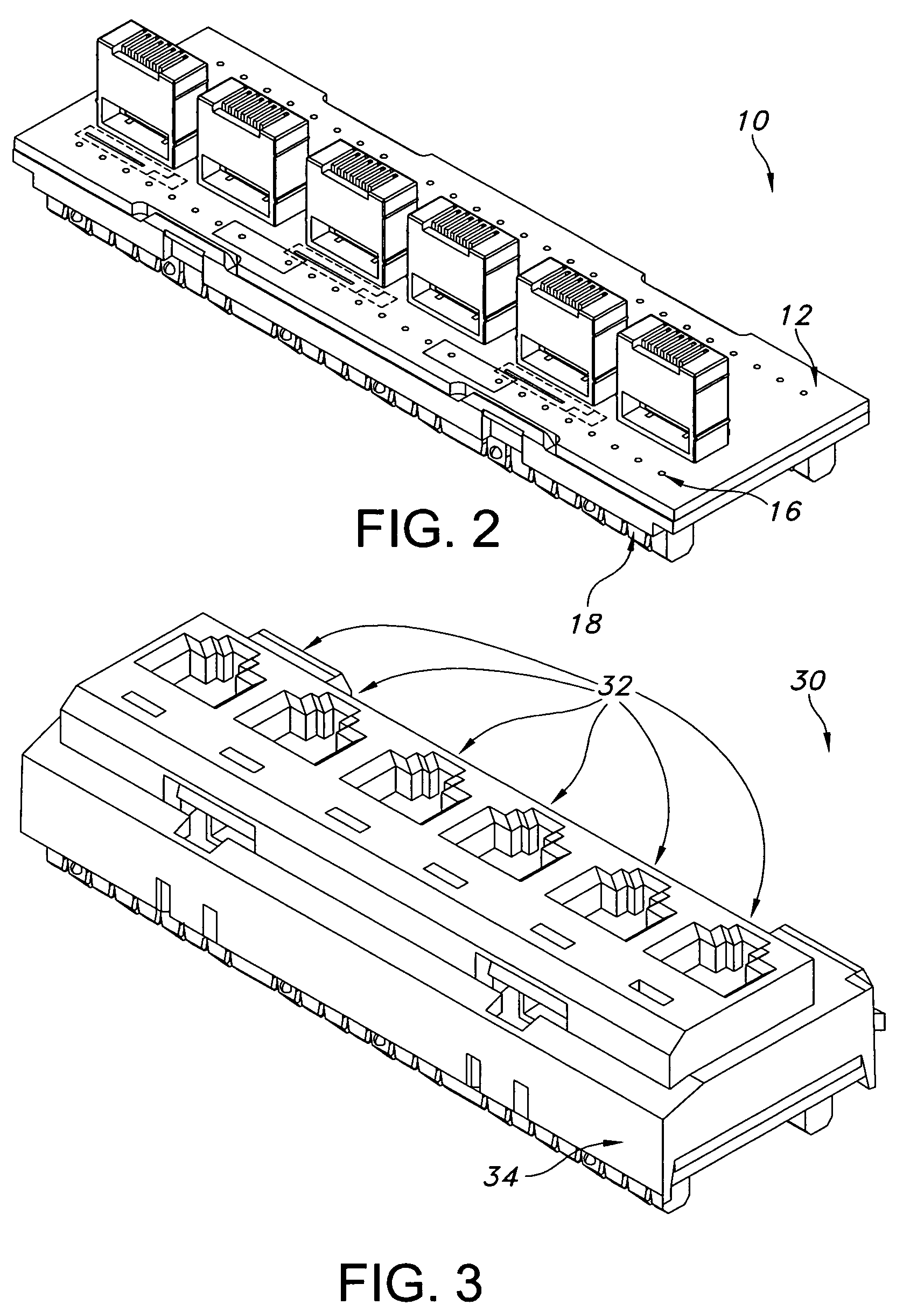Low noise multiport connector
a multi-port connector, low-noise technology, applied in the direction of coupling device connection, printed capacitor incorporation, printed electric component incorporation, etc., can solve the problems of noise, noise is a major limitation factor in the performance of today's communication system, and the transmission system adds distortion, etc., to reduce port-to-port crosstalk
- Summary
- Abstract
- Description
- Claims
- Application Information
AI Technical Summary
Benefits of technology
Problems solved by technology
Method used
Image
Examples
Embodiment Construction
)
[0040]The present disclosure relates to connecting hardware adapted to be used in telecommunication systems to reduce port to port crosstalk noise and thereby improve the systems transmission of signals, including high speed data signals. In an exemplary embodiment, a connector, typically a multiport assembly, is described that reduces port to port crosstalk noise by utilizing a low signal radiated modular insert that is electrically connected to a PCB having a positive and negative combination compensation technique, without the need for shielding or additional physical components. Moreover, in an exemplary embodiment, an inexpensive, simple to manufacture and use connector / assembly is described that reduces port to port crosstalk noise between connector terminals.
[0041]A multiport connecting hardware of the present disclosure is typically characterized by: (a) a multiport assembly; (b) input interface connecting point(s) consisting of a matable plug that forms an electrical conne...
PUM
 Login to View More
Login to View More Abstract
Description
Claims
Application Information
 Login to View More
Login to View More - R&D
- Intellectual Property
- Life Sciences
- Materials
- Tech Scout
- Unparalleled Data Quality
- Higher Quality Content
- 60% Fewer Hallucinations
Browse by: Latest US Patents, China's latest patents, Technical Efficacy Thesaurus, Application Domain, Technology Topic, Popular Technical Reports.
© 2025 PatSnap. All rights reserved.Legal|Privacy policy|Modern Slavery Act Transparency Statement|Sitemap|About US| Contact US: help@patsnap.com



